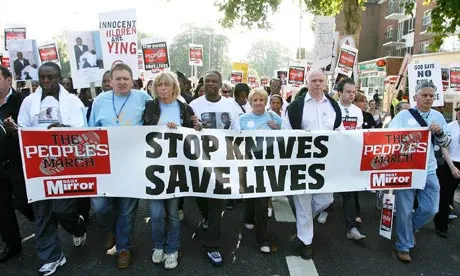We use rhetoric to move people. To inspire. To convince people to change. This is a part of the protected free speech codified in the First Amendment.
The courts, throughout the years, have leaned heavily on more speech to counter unpopular speech. Until they didn’t.
Like today, the courts have agendas, not always good agendas, not always in favor of The People. For a while, there were entire classes of speech that were illegal. Sometimes directly and sometimes indirectly.
The indirect path was “Criminal Syndicalism”.
The appellant, a leader of a Ku Klux Klan group, was convicted under the Ohio Criminal Syndicalism statute for “advocat[ing] … the duty, necessity, or propriety of crime, sabotage, violence, or unlawful methods of terrorism as a means of accomplishing industrial or political reform” and for “voluntarily assembl[ing] with any society, group, or assemblage of persons formed to teach or advocate the doctrines of criminal syndicalism.” Ohio Rev. Code Ann. § 2923.13.
—
Brandenburg V. Ohio, 395 U.S. 444, 444–45 (1969)In summary, a man called the local news and asked if they wanted to do a report on a Ku Klux Klan meeting. The reporter said yes, brought his cameraman, and they filmed the meeting. During the meeting, the man wore a hood and said lots of Klan-like things, burned a cross, all while open carrying. After the main event, the leader, still wearing his hood, gave a short speech, two paragraphs long. Part of the speech was a statement that they were going to march on Congress on the 4th of July and then split into two groups to march into Augustine, Florida, and Mississippi.
This was aired. Then a second rally was filmed with the same type of speech given, also aired.
The leader was arrested, charged, and then convicted in a court of law. His appeal to the Ohio appeals court was granted, but they affirmed the lower court’s decision. The case then went to the Ohio Supreme Court, where they also affirmed the lower court’s opinion. Finally, the case was appealed to the Supreme Court on constitutional grounds.
In 1927 the Supreme Court upheld California’s Criminal Syndicalism Act, finding that advocating violent means to effect political and economic change involves such danger to the security of the State that the State may outlaw it. Whitney v. California, 275 U.S. 357 (1927), and Fiske v. Kansas, 274 U.S. 380 (1927), both gave this power to infringe on speech to the State.
Later Supreme Court cases, Dennis v. United States, 351 U.S. 494 (1951), for example, thoroughly discredited the Whitney opinion.
These later decisions have fashioned the principle that the constitutional guarantees of free speech and free press do not permit a State to forbid or proscribe advocacy of the use of force or of law violation except where such advocacy is directed to inciting or producing imminent lawless action and is likely to incite or produce such action.
—id. at 447.
In other words, the speech must incite violence or lawless actions imminently.. What imminently means is not clear and is the reason lawyers make big money.
Accordingly, we are here confronted with a statute which, by its own words and as applied, purports to punish mere advocacy and to forbid, on pain of criminal punishment, assembly with others merely to advocate the described type of action. Such a statute falls within the condemnation of the First and Fourteenth Amendments. The contrary teaching of
Whitney v. California,
supra, cannot be supported, and that decision is therefore overruled.
Reversed.
—id. at 449
This is the current case law (IANAL). It is what we judge protected speech by. Is the person inciting violence or the breaking of the law?
A statement of “Kill Bill!” when Bill is over there is clearly incitement. It is imminent, and it is a call for violence as well as a call for breaking the law. If Bill isn’t there, this might not be incitement because it is not imminent. In the same way as “Kill the one-horned, one-eyed, purple people eater” isn’t incitement because that entity isn’t real.
I am more than willing to say, “The only good communist is a dead communist.” I am not asking you to kill communists; I’m not even saying that I am willing to kill communists. It is simple rhetoric.
What if I go a step further, though? What if I were to say, “It is OK to kill communists.” This is still just this side of incitement. There is no imminent aspect, and there is no target.
And this is precisely what we have been hearing for years from the left: “It is OK to punch a Nazi. You should punch Nazis. If you see anybody from that Cabinet in a restaurant, …, And you push back on them.” These are not incitement, as they sit. There is no target in the first two, and in the last, it is not a call for violence. Just simple verbal confrontation.
But these things do not exist in a vacuum. They live within a context.
When that same group assigns a label, they can then attack that label. When one part of a group is calling you a Nazi and the other part is calling for the death or merely the beating of Nazis, it does rise to the level of incitement.
This is the classic two-step incitement pattern that courts, linguists, and political psychologists have studied for decades. Step 1: Dehumanization/Labeling. Step 2: Invocation of the “Accepted Remedy”.
When the left and the media trumpet, over and over again, that Trump is issuing illegal orders, this becomes part of the context. The media pushes the “Bush-appointed Judge halts Trump’s order, finding that he is unlikely to win on the merits.” to the front page. The Supreme Court slapping down that selfsame judge might get a paragraph on page 6, right under the ad for hemorrhoid cream.
This is the context that the six senators have taken advantage of; they created a simple video reminding military personnel that they are bound to the constitution and that they are required to ignore “illegal orders”. They can dishonestly claim that they aren’t calling for the troops to ignore Trump’s orders, but within the context, that is exactly what they have done.
Trump’s statement, on the other hand, isn’t an attack or an incitement. He has accused those six senators of a crime and stated the penalties for that crime. Only if they are found guilty of that crime are they at risk for that most final punishment.
But Trump, being Trump, didn’t cite to the code. He didn’t explicitly state what law the senators broke. This leaves vast amounts of wiggle room. And Trump could be wrong. And he likely got the punishment wrong. Regardless, it doesn’t rise to the level of a threat and is protected speech.
And here is where we start to have issues. I know that Trump is a flawed human. Just as Reagan was a flawed man. They can be heroes of mine without being my gods. I might agree with 99% of what they say or do; that doesn’t mean I will agree with them every time.
The left doesn’t think that way. Their heroes don’t walk with us. Their heroes don’t have feet of clay. Their heroes float above us, giving us the wisdom of the ages. They have their Ministry of Truth, their own Minitrue, to keep their heroes halos shining brightly.
But there is a third part of the equation that we don’t talk about. That is the audience.
When these talking heads, politicians, or party leaders speak, they are speaking to an audience. When some talking head says that “MAGA is falling apart,” they are not talking to you and me; they are talking to their audience. The fact that I hear their words doesn’t change who their audience is.
My parents were part of that leftist audience; they knew Trump 45 was bad. They knew it because they heard it from all the people they heard talking about Trump. I wasn’t a part of that audience. I heard the same words, I heard the same spin, I heard the same lie. I went looking for the truth, and found it wasn’t what I heard from “everybody”.
In the same way Trump talks to his audience. But there is a huge difference when he speaks to us. The media and talking heads all tell us what Trump really meant. They hear the same words and twist the message to meet their needs, not the needs of The People.
There is another, more significant difference. The audience of the left is prone to violence. The audience of the right is not.
The number of people in the left audience willing to do violent acts is huge. There are members of the right audience that want to react violently but not initiate that violence. The FAFO policy. Or as I learned from my parents and as I taught my kids, we don’t start fights; we end them.
Where I see conflicts forming is in my trust of those audiences. I trust the left to do violent things. I trust the right to be prepared and willing to provide FA, but not to initiate that violence. If you don’t have that trust, there are problems.
Unfortunately, that problem is about that crazy dude over there. There are crazies on both sides. If we care about optics, if we care about people, we don’t celebrate violence inflicted on others. This helps contain the smaller number of crazies on the right. The left glorifies their crazies.
Just look at the hero worship over a man who killed a CEO. That is simply evil.
Conclusion
I’m tired, and I believe that many on the right are tired of playing nice because the left will think badly of us. They already think badly of us. It doesn’t matter what we do; we will always be evil to them. For those in the middle that might look at the tired response of “Well F you right back” as being the same, we can’t roll over anymore. The only way forward is to fight back.
It doesn’t matter how many times they tell the same old lie, we still have to say “That is a lie.” It is long past time to stop being the doormat to the left.






 This is copied from a post on Facebook, and I’m sharing it because I haven’t recovered from the 8 billion other things I’m doing this month. It was written by Janet Elaine Parks.
This is copied from a post on Facebook, and I’m sharing it because I haven’t recovered from the 8 billion other things I’m doing this month. It was written by Janet Elaine Parks.

